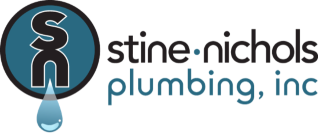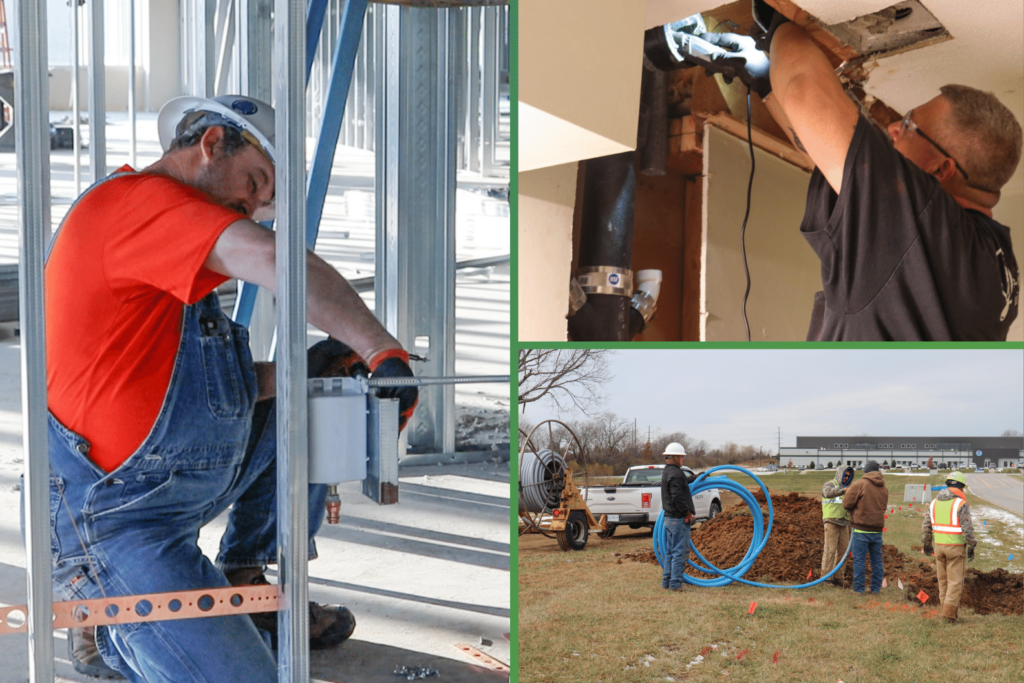If you’re a DIY aficionado and enjoy tackling weekend projects around the house, this blog is for you! Even though we recommend leaving most plumbing duties for a licensed plumber, there are certainly plenty that you can easily do yourself. Some of these will likely seem easier for those with more of a construction background, but can nonetheless easily be turned into a Saturday project! With all of this in mind, there are more than a few safety items to keep in mind before embarking on any project. These are intended to not only keep your property safe, but also yourself and any other occupants of the home.
Before we dive into “DIY Plumbing Safety 101,” I would like to welcome any new visitors to our plumbing blog. Stine-Nichols Plumbing is a plumbing contractor operating in the Kansas City market. Having personally been in the plumbing world north of 40 years, I feel I’ve been able to experience just about everything plumbing-related. From overseeing large-scale construction projects to simply installing a water heater, it truly does encompass a wide range of projects. With this blog, my goal is to educate homeowners on their own plumbing systems. Whether that means knowing how to flush your water heater or what can and can’t go down the drain, that is my primary intent.
With this week’s blog, we’ll be focusing on anyone looking to make a DIY repair or replacement on their plumbing system. While this can be tricky if you have little-to-no experience, it is certainly doable!
Research, Research, Research
Before we discuss some of the more practical safety precautions, the most important first step is to do your research prior to starting anything! Prior to turning the water off or even grabbing your tools, make sure you completely know what you’re getting yourself into. Whether that means watching videos online, reading step-by-step tutorials or purchasing the correct tools, be aware of what you can and can’t handle. A lackluster plumbing repair can result in plenty of headaches week and months down the road.
Understand Local Policies
Our next topic of discussion is likely going to depend on the scale of your DIY plumbing project. If you’re just replacing a toilet flapper, you’re fine. However, if you’re gutting the bathroom or kitchen and going for a full-on remodel, you’ll want to keep reading. If you’d ask anyone that’s gone through a remodeling project, they would likely say the plumbing or electrical parts were the most complex. For the sake of this blog post, any plumbing changes must abide by building codes. These are put in place to prevent any dangerous conditions. While the National Uniform Plumbing Code applies to essentially the entire country, there can also be local codes in which you must follow! You’ll want to ensure the remodel follows these codes and is able to pass an inspection. All in all, this goes back to the point above in regards to doing proper research. That’ll ensure you’re well aware of all the codes and have a blueprint that’ll pass!
Protect Yourself
Simply put, you’re going to want to make sure that you protect yourself! This is the most important safety tip for plumbing repairs. There are a number of things that could go wrong with the plumbing system itself, so you want to make sure you’re covering all of your bases in terms of personal protection.
Eyes – First up, make sure to invest in a pair of safety glasses for any large-scale projects. You’re going to be around various sprays, dust, chemicals and possibly sparks. Keeping these away from your eyes is going to be in your best interest.
Head – If you follow us on Facebook or Instagram, you’ll likely see some hard hats on certain construction sites. While they certainly aren’t needed for all jobs (DIY included), there are instances with unfinished ceilings that could pose a risk of hitting your head. In these cases, toss a hard hat on. Likewise, if you’re using a lot of loud power tools for demo, consider grabbing some ear plugs as well! If you’re around those kinds of loud noises on a daily basis, it could result in slight hearing damage. Lastly, it’s become a part of normal life in 2020 with the Covid-19 pandemic, but a facemask can be useful if there’s any mold or other fumes present on-site.
Body – You’ll want to protect your body. With this, we have three general recommendations. Wear gloves, jeans and long-sleeves. It’s as simple as that! And if you have a pair of work boots, toss those on as well! It’s always better to be safe than sorry.
Shut-Off the Main Water Supply Before Starting
You certainly don’t want to learn this lesson the hard way! Before starting any construction on your DIY plumbing project, make sure to shut off the main water supply. The last thing you want is water spraying everywhere and you having to search for where the shutoff is!
Read and Abide By Instructions on Labels
Whether it be chemicals, products or equipment, remember that those labels on them are there for a reason. Particularly if you’ve never used it before, take the extra minute or two to read the instructions and recommended usages. Most of them will also have a line about what to do in case of an emergency as well!
Know Where You’re Drilling
Before you cut or drill into a wall, make sure you’re well aware of what’s hiding behind it. Plumbing pipes, ductwork, electrical wiring and plenty other things could be there, which you certainly don’t want to be cutting or drilling into! We refer to this one as “blind cutting.”
Never Mess Around With Gas
Thanks to the health issues it can present, gas is the one thing you NEVER want to ignore with plumbing projects. This is one of the main reasons why we recommend leaving any gas-line projects up to a licensed plumber who has experience doing so. Even if you’d like to still do some of the other work yourself, make sure to hire someone for the gas portion.
In any case, if you ever smell gas in your home, turn off the gas immediately and call the gas company. Check out our blog here for tips on the signs behind a gas leak!
Don’t Use Chemical Drain Cleaners
While chemical drain cleaners are able to seemingly clear up clogs with relative ease, the truth is they’re causing gradual troubles for your pipes, as well as the environment. Think of them as quick fixes, not the correct fix. Assuming it’s just an average clogged drain, most reputable plumbing companies will be able to clear it up (the correct way) with a 1-hour service call. That will be a lot more affordable than drain cleaners eating away at your pipes over time and leading to a significant repiping project!
Have a Back-Up Plan Ready!
Even though you may have watched plenty of instructional YouTube videos and have all of the necessary tools on-hand, that doesn’t mean everything will go exactly according to plan. Especially if you’re not necessarily a plumber by trade, it’s important to know all of the potential emergency contacts that you may have to get a hold of. This includes a licensed plumber, the gas company, the electric company and the water company. Again, you might not need all of these people, but knowing who to call when something goes awry is valuable knowledge.
Leave It Up to a Kansas City Plumbing Pro
This blog was certainly not meant to scare anyone off from embarking on a DIY plumbing project, but rather educate you on a few of the precautions that you must take! While some DIY repairs are harmless, there are plenty that could be dangerous, especially anything that involves remodeling! If you would prefer to leave your next project for a plumbing professional, don’t hesitate to give Stine-Nichols Plumbing a call. Our experienced residential and commercial plumbing technicians will ensure your project gets completed successfully the first time so you won’t have anything to worry about in the future! Click here to receive a free quote.


